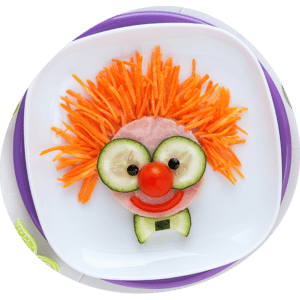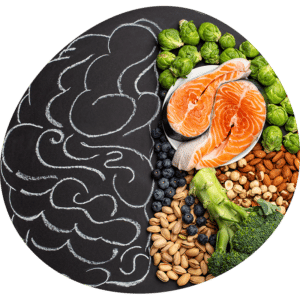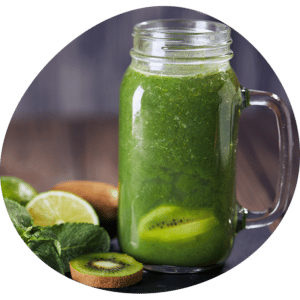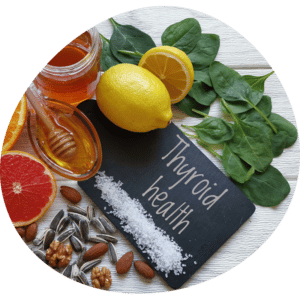Are you looking for ideas on how to relieve your child’s constipation naturally? Constipation in children can have some significant impacts on their mental and physical well-being.
The good news is that you can take some simple steps to relieve their symptoms and improve the consistency of their bowel movements.
Reminder: constipation is not just uncomfortable!
There are serious consequences if it’s left unaddressed, particularly in kids. If your goal is to have a happy, healthy child who grows into a happy, healthy adult, now is the time to take action.
Natural ways to relieve your child’s constipation
As with any health concern, the most important step is to find out the reason why. But these tips will help to tackle the common causes of constipation in children as well as alleviate their symptoms.
Increase their water intake
One of the most common drivers of constipation is low water intake. So an easy first step to take is encouraging your child to drink more water and fluids throughout the day.
Many kids won’t automatically reach for water, and some will refuse to drink plain water entirely! That’s where you might need to get creative and add in some other tastier (but still healthy) forms of fluid.
For hot days, homemade smoothies with their favourite flavour profile e.g. chocolate is an easy way to get some nutrition in along with hydration. You could also make ice-cubes using their favourite fruits to add to water.
For the colder months, you might like to find some herbal teas with a strong fruit flavour that your child enjoys. Soups can also help over the colder months to boost up water intake without needing to drink plain H20.
Encourage more physical activity throughout the day
Movement of the body encourages movement of the muscles in the gut. This helps to move the contents through the digestive tract and out the other end! The latest research also shows there are multiple beneficial links between exercise and gut microbes. So the more your child moves, the lesser their risk of being constipated.
A minimum of 60 minutes of physical activity is recommended per day, and more is even better. Outdoor activities are ideal, as they also support healthy vitamin D, production of beneficial brain chemicals and add exposure to microbes that help them to build up their gut health.
Up their fibre
To relieve constipation, we need to increase the bulk of the stool – which is where fibre comes in. Any source of dietary fibre is a great starting point, but for extra benefits, we want to increase their prebiotic fibre intake.
Why? Because prebiotic fibre will feed the good microbes in the gut and encourage healthy diversity. The more diversity, the lesser their risk of constipation.
You’ll find fibre in fruit, veggies, nuts, seeds, beans, legumes and wholegrains – all of the foods that kids are less likely to eat!
This is where you might want to get creative with your cooking and baking. For example, you could make baked goods with beans, sweet potato or pumpkin added in for a fibre boost. If your child loves pasta, try adding in some pulse, lentil or buckwheat pasta. You can also add lentils to bolognaise sauces without most kids even noticing.
It may take time to transition your child to higher-fibre options, but the benefits will add up. However, if your child has sensory issues, it’s best to work with a health practitioner to find alternative methods.
To learn more about fibre and the recommended intake for children, teens and adults download my free Fibre info sheet here.
Include constipation alleviating foods in the diet
Flaxseeds and flaxseed oils are very useful. The seeds when ground are a good source of fibre and can act like an intestinal broom when eaten, sweeping the contents of the lumen towards the rectum. The oil can help lubricate the passage of stool through the lumen. Aim for at least a tablespoon of each in the diet each day.
Kiwi fruit is very useful when addressing constipation. Some scientists in New Zealand discovered that 3 kiwi per day helped alleviate chronic constipation. Aim to include kiwi in diet diet by adding to smoothies, topping cereal with it in the mornings or freezing and blending into “nice cream” along with some yoghurt and frozen bananas.
Aloe Vera Juice can help with constipation also. Please ensure you check the labels and only purchase aloe vera that is free of preservatives.
Bitter foods such as grapefruit, bitter green leafy vegetables such as kale, rocket, endive and dandelion leaves can help stimulate bile flow, helping to ease constipation and promote digestion. Try including small amounts of these foods into salads or smoothies.
Stewed fruits such as pears, plums, apples and prunes and kiwi fruit are well tolerated and easier to digest. Enjoy with a Activa yoghurt, for added probiotic goodness as the strains in Activa have evidence to suggest they speed colonic transit time (only suitable for those without dairy issues).
Try gently increasing prebiotic foods (globe artichokes, garlic, onion, leek, asparagus, legumes, peas, fruit, okra) and probiotic foods (sauerkraut, kefir, yoghurt, kombucha).
Raw, crushed garlic added to meals once off the heat can be useful to inhibit one of the main bacteria which slow down intestinal transit time. It can also be added to home made hummus recipes.
Citrus peel – add to baking, cereals, home made juices or trail mixes. Citrus peel helps to speed up intestinal transit time.
Encourage Chewing as much as possible
Remember, digestion starts in the mouth. The act of chewing tells our digestive system that food is on it’s way and signals the production of enzymes which promote peristaltic movement of the gut.
Investigate underlying causes
While we’ve looked at the common lifestyle factors for constipation, there’s also the chance that another health concern is playing its part. Food intolerances, conditions such as Coeliac disease and diabetes, and even mental health challenges such as anxiety could be involved. There are also certain types of bacteria which can slow down intestinal transit time and contribute to constipation, therefore having a microbiome assessment can be a highly valuable way of identifying the potential cause of the problem in your child.
If your child isn’t responding to general diet and lifestyle changes, it’s time to work with a healthcare practitioner to investigate why.
Consider supplements
In an ideal world, you would be able to relieve your child’s constipation through small diet and lifestyle tweaks alone! But in some cases, they may need some additional support to ‘get things moving’ and break the cycle.
This is where supplements may be warranted. The most common supplements used in constipation are probiotics, prebiotics/fibre supplements and magnesium.
You want to ensure you get the best form of any supplement based on your child’s case. That’s why it’s always recommended to work with your paediatric nutritionist or naturopath before choosing a supplement.
Feel like you’ve tried everything to relieve your child’s constipation with no luck?
As an experienced paediatric naturopath, I’m here to help. Click here to learn more about the children’s health issues I work with.
Share this Blog
If you enjoyed this article share it across your socials









